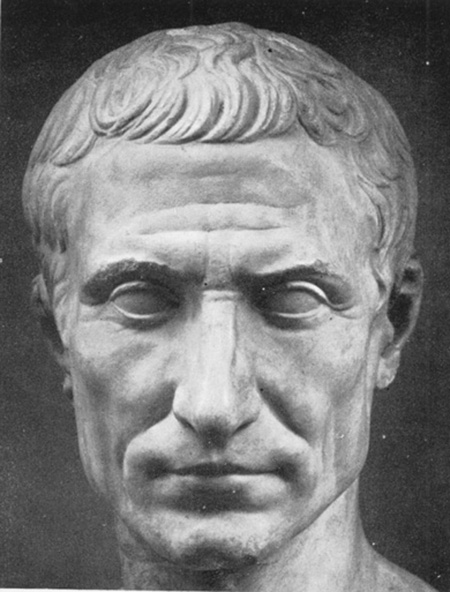Tradition has it that Sulla remarked to those who pled for Caesar’s life, “Keep him since you so wish, but I would have you know that this young man who is so precious to you will one day overthrow the aristocratic party which you and I have fought so hard to defend. There are many Mariuses in him.”
Caesar had previously served as the questor for Spain; now he returned as the governor and military leader.
We know little about the extent of Caesar’s military experience to this point. He had served under the King of Bithynia, and he had shown his alacrity in the way he handled a group of pirates who had captured him in the eastern Mediterranean. None of these early commands, however, had been enough to show whether Caesar was a true army man, or if he was, like many Roman nobles, only to spend a short time in the military before using that career to springboard into politics.
Now Caesar showed his critics that he was no amateur. Almost at once upon his arrival in Spain, Caesar announced the creation of a new legion: the Tenth Legion. Until about twenty years earlier, legions could only be created by the Senate and Popular Assembly. During the time of Sulla and afterward, victorious generals like Pompey had started the new precedent of creating legions, and then having them confirmed by a vote in the Senate. Caesar thus continued this tradition. The new Tenth Legion was added to the other two already stationed in the province. The new Tenth Legionnaires were young men, predominantly Spanish. As a gesture to please them, Caesar gave the legion the bull as its emblem (bulls were popular in Spain, even then).
Caesar then moved against the tribes of eastern Spain. Coastal Spain, along the Mediterranean, had been conquered by Rome nearly 100 years earlier, but inland Spain, extending to the Atlantic Ocean, was still the realm of the Iberian tribesmen. Caesar marched against the tribes, attacking, capturing, and often burning their towns. Though his praetorship extended for only one year, Caesar did much to extend Roman control throughout Spain. By the time he left for Rome, he had enhanced his military reputation and had gained the unswerving allegiance of the men of the Tenth Legion. It was said that he remembered the names of all his centurions, and that he could call upon them to undertake special tasks on his behalf.
Caesar’s victories over the Iberian tribesmen were little reported in Rome. Therefore, when Caesar returned to Rome in 60 B.C., he was still considered something of a political lightweight: handsome, charming, gifted with the populace, but not a major player or formidable opponent. Caesar showed his political skill clearly on his return. He had submitted his name for consul for the year 60 B.C. He knew, as all Romans did, that a consul was not allowed to have a military triumph within the city limits. Therefore he was faced with a difficult choice: whether to be consul or to have the adulation of the crowd.
As it turned out, this was an easy decision for Caesar to make. He wanted and needed to be consul. A triumph was a secondary matter.
Caesar was named consul for the year 59 B.C. and granted proconsular power in not one but two provinces, Cisalpine Gaul and Transalpine Gaul. (Cisalpine Gaul was what is now northern Italy, and Transalpine Gaul was what is now southern France.) Anyone who previously had thought Caesar lacked military ambition now knew such an idea was mistaken. Rather, Caesar was trying to set up a base for conquests that might eventually rival those of Pompey. Pompey appeared willing to take the risk because he needed Caesar’s support to make sure the land bill got through the Senate.
